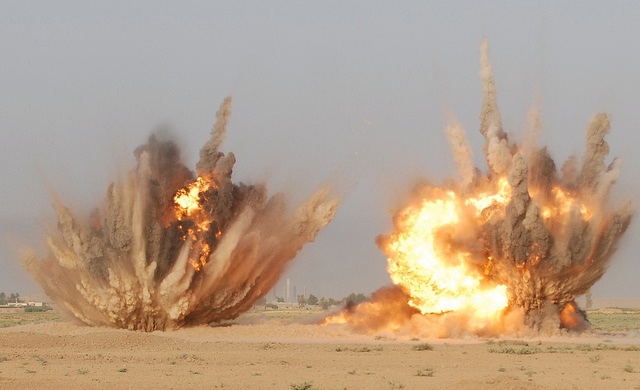Munitions company Chemring (LSE:CHG) announced this morning that the private equity firm Carlyle Group has indicated that, after two-and-one-half months of due diligence and negotiations, it will not pursue an interest in the company. Chemring specializes in the manufacture of countermeasure devices and explosives as well as munitions. This mornings announcement set off a veritable firestorm of responses both in terms of market response and message board activity. Chemring’s share price dropped 14.00 pence (5.43%) by midday to 244.00.

Studying the reactions of analysts and amateurs, the fact that Carlyle is no longer interested seems to be the beginning of the end of the world for some of them, much like many Americans feel following Obama’s re-election. From a distance, investors appear to be over-reacting. Let’s look at the facts.
A Dose of Reality
- Chemring has a history of being a volatile stock. Investors seem to not only react, but to over-react.
- When Chemring initially announced a “highly preliminary expression of interest” by Carlyle on 17 August 2012, the share price jumped 30% from 313.00 to 414.00 in a single day. By any standards, that is an over-reaction to anything that is “highly preliminary.” It’s like placing a £1,000 bet on the Old Gray Mare immediately after a “highly preliminary” announcement that she is considering running in the Derby.
- Just a few days after the revelation of the Carlyle inquiry, Chemring announced that it had appointed Mark Papworth as CEO effective 5 November. Incumbent CEO David Price had resigned with immediate effect. That ought to have been an indicator that the likelihood that the Carlyle negotiations would come to fruition had been dramatically reduced. The inquiry had just begun when a new CEO, a “relatively key position” occupies the corner office. In an M&A scenario, the courting company and the banks want the key players in place. Some banking covenants require that they be in place. If the acquiring company wants someone out of the picture, they will negotiate them out during the process or force them out subsequently, but a change of leadership at this juncture is highly unusual.
- Chemring’s performance has suffered from a series of extenuating circumstances, most of which relate to delays in projected deliveries of goods because of slower than usual government contract letting. Investors have got to realize that the military supply sector since 2009 is not the same as it has been for the 60 years following WWII. The global economic crisis has forced cutbacks and delays. It has become increasingly more difficult for defense contractors to accurately project these delays as governments struggle with their budgetary constraints. This is reflected in the Chemring trading statement released 01 November in which the group reduced its year-end earnings projections whilst promising a further update on 17 November.
A Spoonful of Sugar to Help the Medicine Go Down
This is a defense contractor. Have you been reading the news? The Middle East is in turmoil and it’s not getting any better. Now that the US elections are over and the man who won the popular vote is not going to be the new president, the Middle East situation is going to rise back to the surface. With Syria embroiled in an escalating civil war that is already spilling over into Turkey, Jordan, Lebanon, and Israel; with the Jordanian people on the edge of unrest; with the Iranian nuclear threat continuing to grow; with so many overt threats being made; not to even mention North Korea and boy-president Menta Li Ill — there is a strong likelihood that demand for military products will not only increase, but accelerate.
Sometimes its not about the stock as much as it is the sector. The military market is not like oil or gas or mining or retail. It is driven by an entirely different set of circumstances. None of Chemring’s “problems” are about business lost. They are all about business delayed. Current events point to business picking up.

 Hot Features
Hot Features













